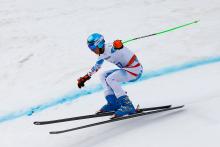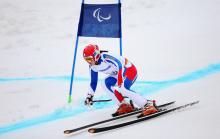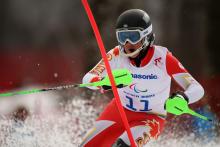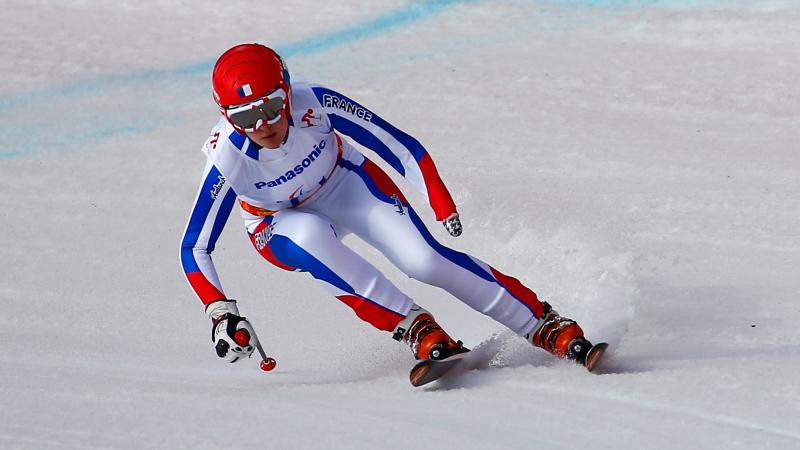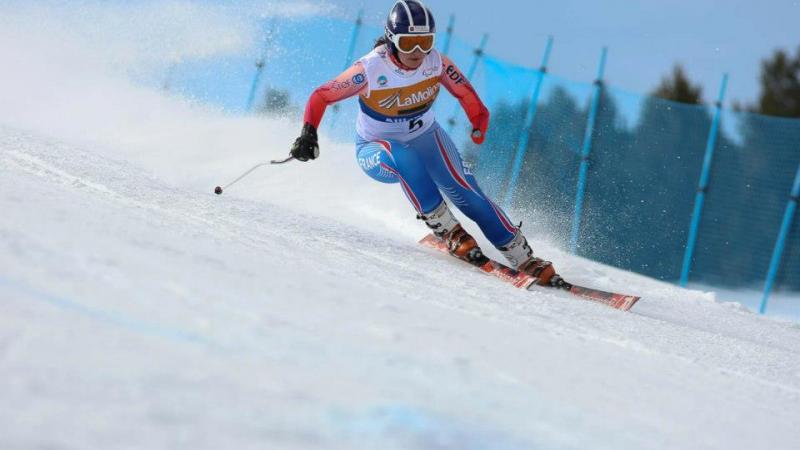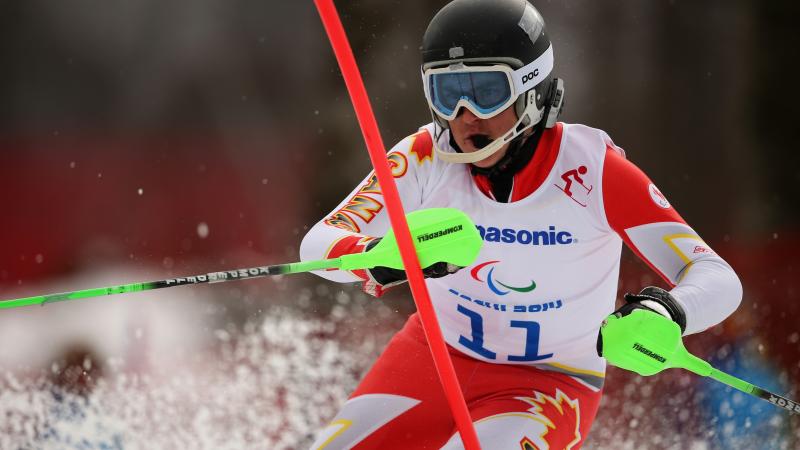The future is bright for IPC Alpine Skiing
The sport of para-alpine skiing has an extremely bright future thanks to the number of youngsters competing at major international competitions and winning medals 24 Apr 2014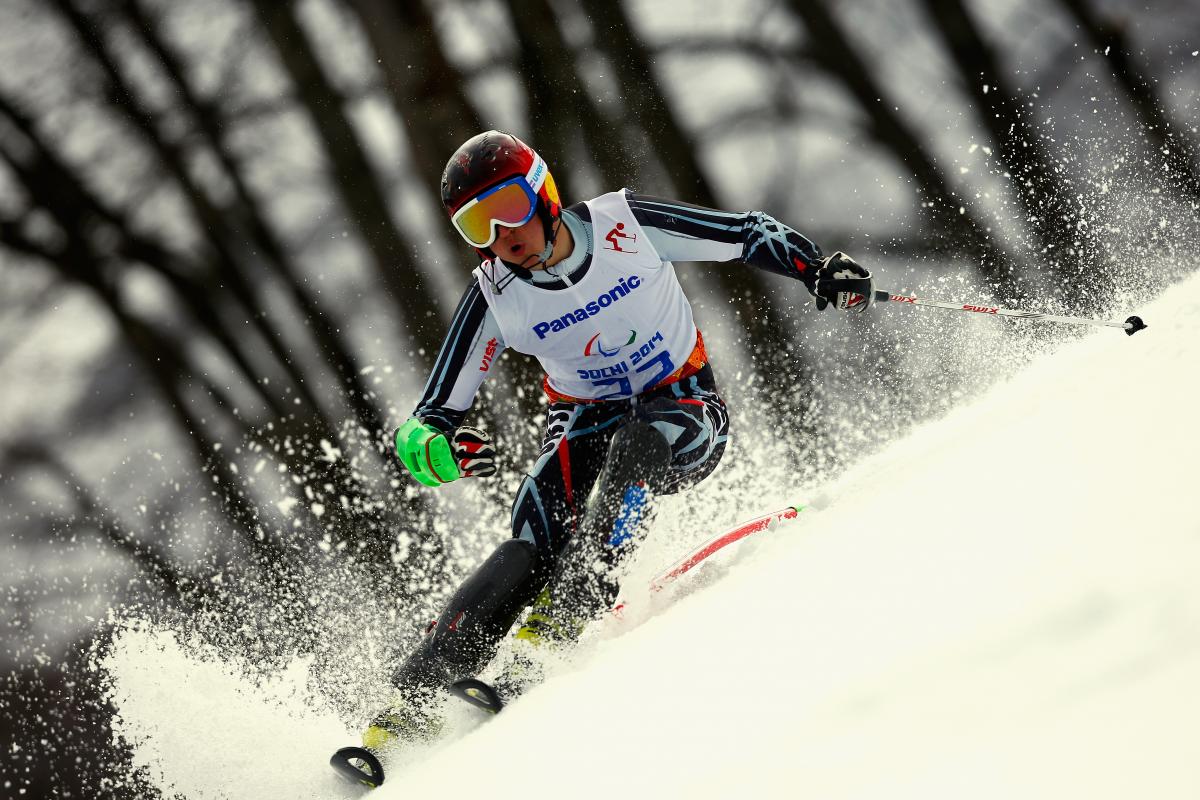
Russia's Alexey Bugaev competes in the men's slalom standing on Day 6 of Sochi 2014.
“It was fantastic to see the graduates of 2006 doing so well at the Paralympic Winter Games, not just in Sochi but also at Vancouver in 2010."
Sylvana Mestre, Chairperson of the IPC Alpine Skiing Sport Technical Committee, comments after the Sochi 2014 Paralympic Winter Games where exactly half of all medallists were aged 25 or under and 12 out of the 32 gold medals were won by athletes aged 21 or younger.
Two of the gold medallists – Russia’s Alexey Bugaev and Canada’s Mac Marcoux – were just 16 years old in Sochi.
In comparison, at Vancouver 2010 just five out of 30 gold medals were claimed by athletes aged 21 or below.
“I was really pleased to see the age profile of the medallists in Sochi. It showed the sport has a very bright future with some great youngsters developing into fantastic athletes,” said Mestre. “It gave me great happiness as it showed the results of work the Sport Technical Committee started eight years ago to get more youngsters into the sport.”
In 2006, 55 youngsters aged 11-17 years attended an IPC Alpine Skiing development camp in France and many of the graduates from it competed in Sochi and won medals.
Amongst them were France’s Marie Bochet, 20, a winner of four gold medals, and Austria’s Markus Salcher, who topped the podium twice and also claimed a bronze.
Mestre said: “We invested a lot in 2006 in developing the sport and creating pathways for athletes to arrive at the Paralympic Games.
“There are now clear pathways of competition at all levels of the sport with athletes able to progress right from the bottom to the top in a very short space of time as shown in Sochi.
“It was fantastic to see the graduates of 2006 doing so well at the Paralympic Winter Games, not just in Sochi but also at Vancouver in 2010.
“We have achieved a lot in a short space of time but I believe this is only the beginning.”
According to Mestre, the Sochi success story has shown that more needs to done in developing the sport, especially in educating society, providing high-level training for youngsters and getting more women participating.
She also believes the conclusion of the first IPC European Para-Snow Sport Youth Circuit and the introduction of para-snowboard into the alpine skiing programme has shown the huge potential that is out there.
“The Youth Circuit was a great way of introducing youngsters to the sport, educating them and giving them a feeling of what it’s like to compete at a high level,” Mestre explained.
“The youngsters now want a youth circuit of their own where they can compete on a regular basis and it’s something the Sport Technical Committee is working on. We’re looking at developing circuits for different age groups, covering all impairment groups, and working out how those athletes who are good enough can graduate to the IPCAS circuit, World Championships and the Paralympic Winter Games.
“As shown in Sochi with Bugaev and Marcoux, 16-year-olds are good enough to win medals at the top level. More youngsters are also looking to get into para-snowboard too. Australia’s Ben Tudhope, who was just 14 in Sochi, showed that age is no barrier to success.
“Going forward, I fully expect some of the youngsters who took part in the first Youth Circuit to compete at the 2017 World Championships.
“By the 2018 Paralympic Winter Games they will be the ones challenging the youngsters who won medals in Sochi. It’s great news for the sport and very exciting.”
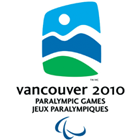
 Facebook
Facebook
 Instagram
Instagram
 Twitter
Twitter
 Youtube
Youtube
 TikTok
TikTok
 Newsletter Subscribe
Newsletter Subscribe





